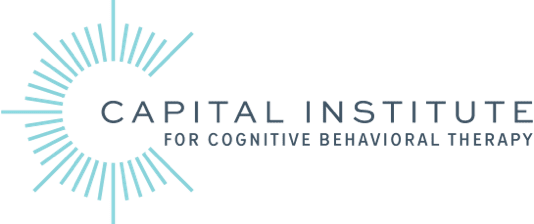Psychological Testing and Assessment: A Quick Guide
Psychological testing and assessment can play a pivotal role in understanding an individual’s cognitive, emotional, and behavioral functioning. Testing can explore issues related to intelligence, learning and memory, language usage, academic achievement, problem solving, processing speed, reasoning, attention, mood, and personality.
Capital Institute for Cognitive Behavioral Therapy offers comprehensive testing and assessment services for children, adolescents, and adults in our Bethesda, MD office.
Reasons for an Evaluation
Whether it’s for diagnosing specific conditions, determining eligibility for educational accommodations, or gaining insights into one’s strengths and challenges, these services offer support to individuals of all ages. Here’s a closer look at some of the reasons evaluations may be requested:
- Learning Disabilities and Other Academic or Classroom Concerns. Identifying and addressing learning disabilities is essential for ensuring that students receive the support they need to thrive academically. Psychological assessments can help pinpoint specific areas of difficulty, such as reading, writing, or math, allowing educators to tailor interventions and accommodations accordingly.
- School Admissions Testing. If you are considering enrolling your child in an independent school in the Washington, D.C. metro area, they may be required to complete admissions testing. Some public-school advanced programs also require testing as part of their application process. School admissions testing can provide insights into a student’s cognitive abilities, academic potential, and readiness for advanced coursework, helping to inform admissions decisions.
- IEP Eligibility. Individualized Education Programs (IEPs) are designed to meet the unique needs of students with disabilities. Psychological assessments play a crucial role in determining eligibility for special education services and developing appropriate IEP goals and accommodations.
- Attention Deficit Hyperactivity Disorder (ADHD). ADHD can significantly impact academic and/or work performance and social interactions. If you question whether you or your child may meet criteria for ADHD, it is recommended you receive a psychological evaluation to help identify the potential symptoms of ADHD, differentiate it from other conditions, and guide the development of effective treatment strategies.
- Autism Spectrum Disorder. Autism spectrum disorder (ASD) is characterized by challenges in social skills, verbal and nonverbal communication, and behavior. Psychological assessments can aid in the early identification of ASD, facilitating access to specialized interventions and support services.
- Behavioral Difficulties. Behavioral issues can disrupt learning environments and academic progress. A psychological assessment can provide insights into the underlying factors contributing to behavioral difficulties, paving the way for targeted interventions and behavior management strategies for both home and school.
- Social and Emotional Functioning. Individuals may seek psychological evaluations to gain insight into their own thoughts, feelings, and behaviors, and to identify areas for personal growth and development. This can be particularly helpful in guiding the implementation of social-emotional strategies and therapy interventions.
- College Preparedness. Preparing for the transition to college requires careful planning and preparation. A psychological evaluation may be useful in assessing academic readiness, executive functioning skills, and emotional resilience, with the goal of empowering students to successfully navigate the challenges of higher education.
- General Diagnostic Clarification. In cases where individuals present with complex symptoms or overlapping concerns, psychological assessments can provide diagnostic clarity to aid clinicians in formulating accurate diagnoses and developing tailored treatment plans.
The Role of Professionals in Psychological Assessment
Psychological assessments are typically conducted by licensed psychologists or other qualified professionals with specialized training in assessment and evaluation. These professionals use a variety of standardized tests, interviews, observations, and behavioral assessments to gather information and formulate recommendations.
To help meet the needs of our community, we are pleased to offer reduced fee testing and assessment services conducted by our graduate student externs under the supervision of licensed psychologists.
What to Expect During the Testing Process
Capital Institute offers comprehensive testing and assessment services for individuals of all ages and presenting issues. Testing usually takes place over the course of 1-2 full days. Once testing has been completed and all collateral information reviewed, the psychologist writes a full psychological report explaining the findings and providing treatment recommendations. Following testing, we conduct a feedback session to review the results of the assessments and explain our recommendations.
To learn more about our psychological testing and assessment services, click here.
